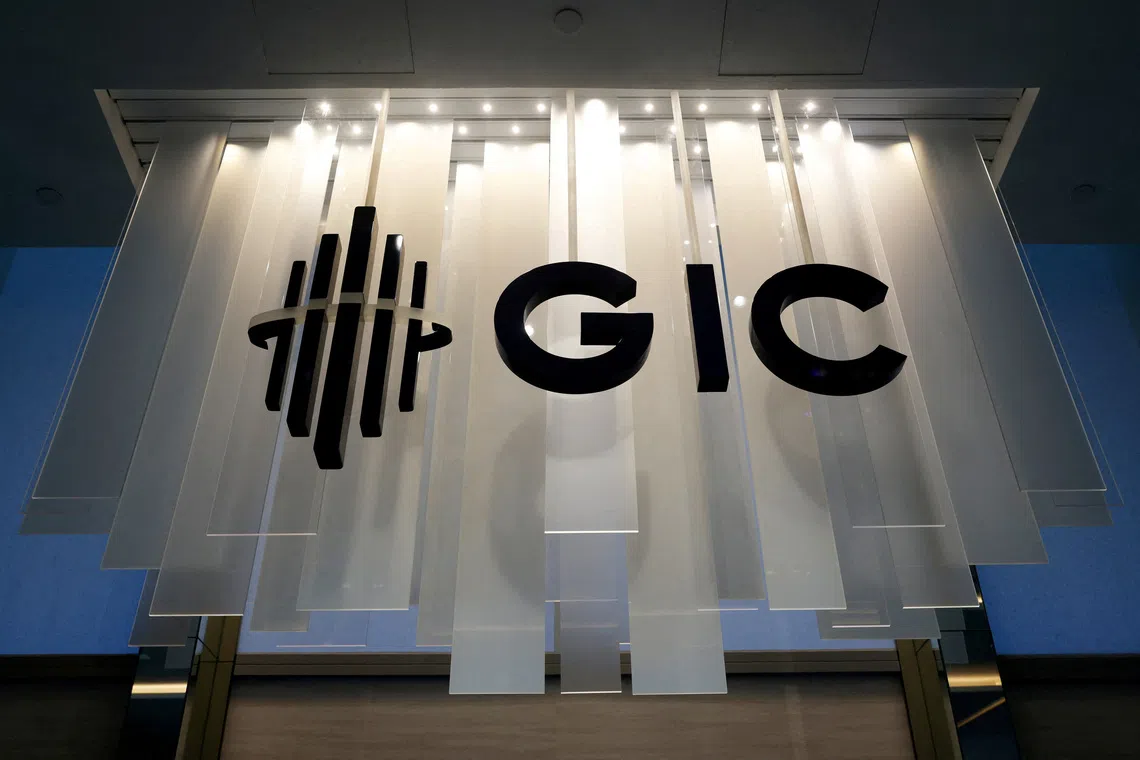GIC sues Nio: Singapore shares of Chinese EV maker bounce back after $1.6 billion wipeout
Sign up now: Get ST's newsletters delivered to your inbox

GIC, which is estimated to have purchased 54.5 million American depositary shares between Aug 11, 2020, and July 11, 2022, alleged that prices “were inflated artificially.”
PHOTO: REUTERS
Follow topic:
- Singapore's GIC has sued Nio in the US, alleging the EV maker inflated revenue by selling batteries to related party Wuhan Weineng, artificially raising share prices.
- GIC, holding 54.5 million shares, seeks compensation for losses, joining a class action suit due to expiring deadlines, despite Nio denying the claims.
- The lawsuit hinges on whether Nio correctly recognised battery sales revenue upfront; the court has paused GIC's suit awaiting the class-action outcome.
AI generated
SINGAPORE - The Singapore-listed shares of Chinese electric vehicle (EV) maker Nio rebounded on Oct 17, a day after the stock’s plunge wiped off more than $1.6 billion in market value.
The sell-off on Oct 16 came after news that Singapore sovereign wealth fund GIC filed a lawsuit in the United States against Nio for allegedly exaggerating its profit and revenue.
The stockholder suit was filed on Aug 28 in the US District Court for the Southern District of New York. It names Nio and its two founders – chief executive officer William Li, also known as Bin Li, and former chief financial officer Wei Feng – as defendants in court documents seen by The Straits Times.
Feng left the company in July 2024.
GIC, which is estimated to have bought 54.5 million Nio American depositary shares between Aug 11, 2020, and July 11, 2022, alleged that prices “were inflated artificially”.
A person close to the case told ST that the suit was filed by GIC for greater protection, even as a class action is taking place.
“GIC is already automatically a class member of the ongoing US class action against Nio, along with all other investors who purchased Nio’s American depositary shares (US-listed securities) during the time period in issue,” he said.
“Because of expiring litigation deadlines under US law, GIC filed a customary ‘placeholder’ complaint simply to preserve all its options – whether to stay or opt out of the class action,” he added.
The news sent the share price of Nio – once seen as a rising star in the EV industry – plunging 9.5 per cent to $6.30 in Singapore on Oct 16, wiping off more than $1.6 billion in market value.
On Oct 17, however, Nio shares shot up 6.8 per cent to $6.73 as at 9.14am.
The stock had tumbled 9 per cent in Hong Kong on Oct 16, making it the biggest percentage loser on the Hang Seng Tech Index and Hang Seng Automobile Index. Its American depositary receipts in New York, however, edged up 0.15 per cent overnight.
Nio said on Oct 16 that the GIC lawsuit “is not a newly occurring incident, nor is it directed at Nio’s recent operational performance”.
On Aug 25, 2022, US shareholder Teddy Saye filed a class action complaint against Nio and its CEO and chief financial officer for misleading investors with fake revenues.
Mr Saye said Nio’s share price fell after a Grizzly Research report alleged that the Chinese company had “inflated its net income by about 95 per cent through sales to a related party, Wuhan Weineng Battery Asset Co”.
In the ensuing weeks, more class action complaints were filed against Nio, with very similar allegations.
Grizzly, a US-based short-seller, said Nio had been flooding Weineng with more than 20,000 batteries to realise revenue before selling the inventory to clients.
That led Nio’s American depositary shares to plunge, resulting in substantial losses for investors, including GIC.
They are now seeking compensation for all losses relating to Nio’s wrongdoing and reasonable reimbursement of their legal costs, according to court documents.
GIC invested in Nio’s Series C round of fund raising in March 2017, when it raised 600 million yuan, about $109 million today.
Another major point of contention in the case is the extent of Nio’s control over Weineng – a company which investors alleged is not an independent company but rather a “shell” entity substantially controlled by Nio.
If this claim is substantiated, Nio would be required to consolidate Weineng’s financial data into its own reports, rendering the previous upfront revenue recognition invalid.
Nio denied the allegations back in 2022. It said the Grizzly report was “not substantiated” and “without merit”.
The controversy centres on Nio’s unique “battery swop and battery rental” model.
In this “battery-as-a-service” model, users can buy a vehicle without the battery, renting the battery from Weineng instead.
Nio recognised the entire battery sales revenue upfront when selling batteries to Weineng.
The effect was immediate: Nio’s fourth-quarter 2020 revenue more than doubled year on year, from 2.85 billion yuan to 6.64 billion yuan.
The outcome of the suits hinge on whether, under US accounting standards, this revenue should be recognised incrementally as users pay monthly rental fees, or if it can be recognised immediately because the batteries were “sold” to Weineng.
Investors argued that if revenue had been recognised incrementally, as they believe is compliant, Nio’s performance at the time would have been significantly lower, and its stock price would not have surged to an all-time high of US$62 in early 2021.
Nio, in turn, asserts that control over the batteries was transferred upon sale to Weineng, and its “performance obligations” were fulfilled, thus justifying the upfront revenue recognition.
These revenues were recorded as vehicle sales revenue and disclosed as related-party transactions in financial reports.
GIC’s lawsuit against Nio was temporarily stayed by the court in early October, pending the outcome of the class action lawsuit filed by US investors.
Nio is slated to launch in Singapore in early 2026 after appointing multi-brand motor dealer Wearnes Automotive as its distributor in August.
Speaking to ST on Oct 16, Wearnes’ spokeswoman Vynn Tu said that plans to launch Nio here remain on track.
The brand will officially debut at the Singapore Motorshow, to be held from Jan 8 to 11, 2026, with a compact electric hatchback. Meanwhile, the dealer has since August or so started the process of getting approval to sell the car here. Recruitment is also under way, although the location of the Nio showroom is yet to be determined.
Nio is among a wave of new Chinese car brands vying for car buyers’ attention in Singapore.
Since 2024, more than 10 new brands have been introduced here. They are drawn by moves by the Singapore Government to encourage EV adoption, which has spurred demand for such cars.
But the Chinese car brands are up against the might of BYD. Based on the latest data from the Land Transport Authority, Chinese carmaker BYD is on track to end 2025 as the top-selling car brand at a time when car prices are being driven up by high certificate of entitlement (COE) premiums. The certificates are required for cars to be registered and the cost to acquire them form a significant portion of a car’s price.
Mr Vincent Ng, a business consultant for Vincar Group, distributor of Chinese EV brand GAC Aion, said that, amid high car prices, stiff competition and a very dominant BYD, the bigger challenge for Nio in Singapore is convincing customers to give it a chance as a newcomer.
Additional reporting by Lee Nian Tjoe


